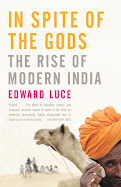My review of pages 1-15 :
The book begins by prefacing that there are no universal definitions for the idealist and realist theories. Nevertheless, the reader of the article must be introduced to generally accepted characteristics of both paradigms. The idealists tend to believe in altruistic human nature, the possibility of improving civilization, the un-inevitability of war, and the necessity for multi-lateral international efforts to eliminate war and injustice worldwide. Realists tend to believe that morals and virtues are a hindrance to the pursuit of national power, and that the effectiveness of policies should be judged on the basis of serving national interests, rather than adherence to the aforementioned principles. More controversial, are the realist views that humans are intrinsically evil, with their most prominent evil being their quest for power, and thus economics are simply a means to achieve power. Furthermore, national political allies are not reliable, and neither are international organizations; international law is not be seen as a source of protection for nation-states.
Criticisms of Realism begin by explaining that its proponents adopted it at a time when it may have been more relevant, but as the international political arena has changed, the applied perspective has not. Realism was more applicable during the middle part of the 20th century, before WWII and until the end of the Cold War, when international relations were typified by power struggles, imperialistic goals and arms races. After the end of the Cold War, when conflict was no longer a dominant feature of international relations, many realist theories became irrelevant. As a result, the realist paradigm loses its ability to predict future relationships between nation-states. As realism and the real world grow farther apart, realism also loses its ability to accurately describe the present international arena.
One important aspect to consider is that Kegley mentions is that Realism tends to prescribe policies that lead to war rather than peace. I believe that this can be explained by the fact that the perspective with which we view a situation tends to guide the decisions we make about it. As such, if a realist believes that war is inevitable, they will likely propose policy that might not necessarily cause war, but that is neglectful of the preventability of war. After all, why would a Realist try to prevent war, if he/she thought it was going to happen anyway? Instead the Realist might focus on profiting economically and socially from the war. Incorporating a moderately positive outlook on international politics is an important part of realizing positive solutions to international problems. A looking glass that is negatively tinted will darken the view on the opposite side of the glass, which is why Realist policies tend to propagate into reality the same problems that they consider imminent in the world.
In their criticism of Realism, liberalists more specifically revisit the effect of democracy on international relations, Woodrow Wilson’s principle of self-determination, and the shifting roles of nation-states brought about by globalization among other challenges to Realist rhetoric. While the article does not mention the term ‘globalization’ I believe that globalization is reason enough to re-evaluate the paradigms used to analyze international relations. Although the current cycle of globalization began at the turn of the century, it began to reach its heights after the Cold War, when the focus of the world shifted.
The explosion of globalization to include previously ignored countries, should have spurred the search for a new paradigm, if only because new nation-states were participating in the arena. Admittedly, Kegley begins to pose these questions in 1994, and it is still unclear which paradigm dominates. I believe that the emerging paradigm must incorporate the truly realistic and moderately optimistic values of both the Realist and Idealist paradigms.








No comments:
Post a Comment